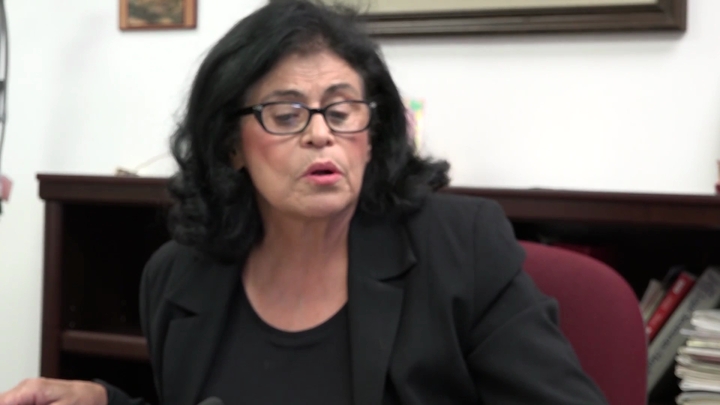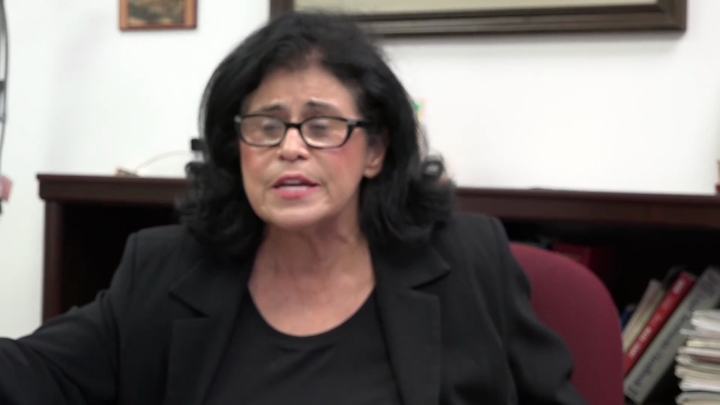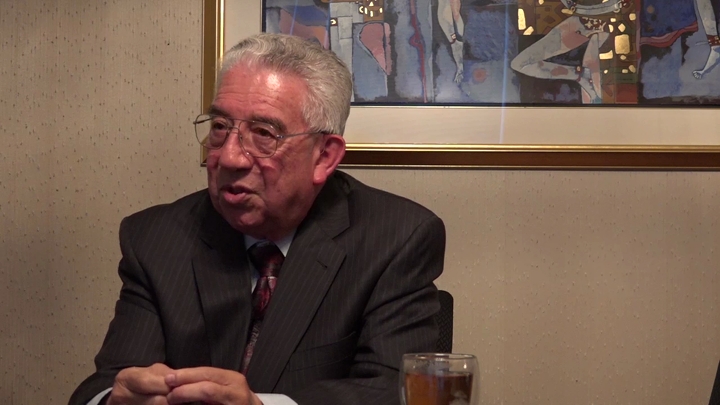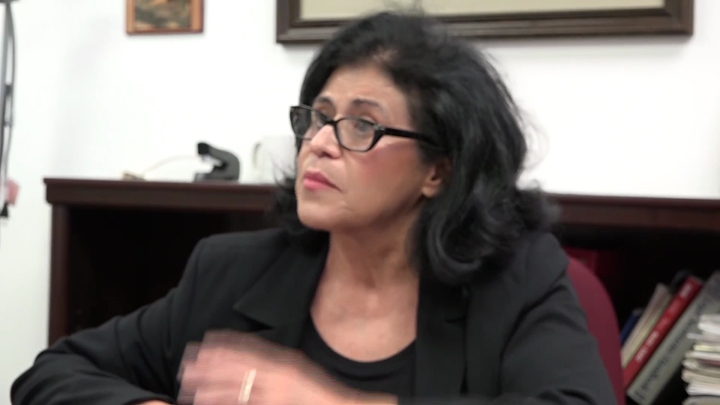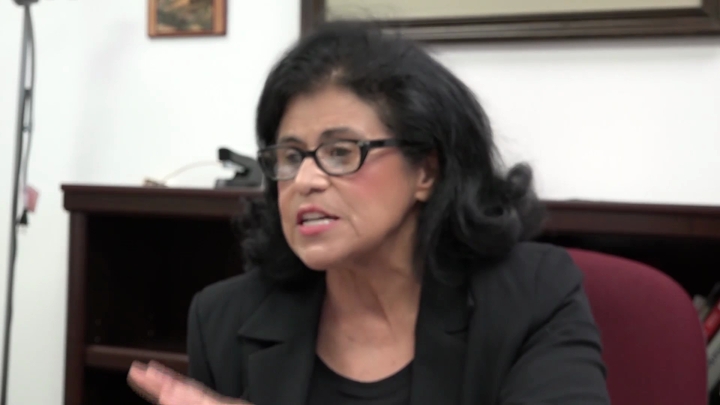Abalos / Community Relations and Law Enforcement
sign up or sign in to add/edit transcript
Zapata: We are switching gears, but we wanted to ask you what were your husband’s cases? You have worked here with him, so you think you could be a lawyer too? Abalos: The thing about it is, my is 10 years older than I am. I learned so much from him. I do not believe when I left high school I really thought about discrimination or rights. I just took whatever was given to us for granted. But he has always been a strong advocate for Hispanics. This law practice is 90 percent Mexican or Mexican American. People that speak English and some that do not speak English at all. He has always been of the mind that he should be an advocate for minorities. So yesterday a woman called and she was from Pecos. She was trying to get an affidavit in order to get 401(k) money that was her daughter’s who died. They didn’t know what to do. The woman called she knew Richard from- he used to practice a lot of cases in Pecos. She told us her name, and it was not a name I recognized and Richard did not recognize it. We told her we could do an affidavit for her and when she asked how much he told her we were not going to charge you because it is just a piece of paper. We are just going to write it up with you. She said to tell Richard he still the same good guy. They knew from years back when he had been practicing. One of the first cases that Richard tried, I was at Odessa College when I was a student at that time. The case, he probably talked about it, was Larry Lozano, the Mexican American who died in the jail. He lost it but it brought attention to the plight of Mexicans and civil rights. So regardless of whether he won it or not he won it in the sense that it made people talk. One of the things that I saw growing up was that it was not okay to be, to describe yourself as a Chicano. I do not know if anyone else has talked about this before, but we did not want to be radical. Anything that made us look radical, the older Mexican Americans stayed away from. We did not want to be seen as radicals because then they would have problems in your jobs or whatever, whatever they did they would have problems so it was not okay to identify yourself in this area as a Chicano. So, with civil rights it made it more okay to be who we are. We do not have to apologize for being Mexican American. We do not have to apologize for being Chicano. We certainly do not have to apologize for being Mexican American. If we were expecting the same rights that other people get- but I think it took a while for the older Mexican Americans to except this. And you can see it in history, for example the G.I. forum. There was going be a lot of discussions in the growing of all of these organizations like LULAC. About what to color to call ourselves. How to present ourselves. There were those people that did not want to be part of these organizations because they did not want to be associated with the radical group. When I first met Richard, when I was going to Odessa College, they thought he was a radical. So what, so why did they see him as a radical, it was for a good cause. It took a while but not very long for Richard to overcome that. He showed that he had good intentions and he is very well respected in this community. Even though they all know, if you ask anybody, who has long fight the fight, he has. Who has spoken out, he had. But people have come to expect that of him now and they recognize that honestly it is something to be admired instead of something to be afraid of. That it is okay to fight for our rights and our privileges, and we should have somebody doing this.


